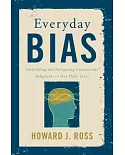The thought-provoking, timely second edition continues to offer a comprehensive, global perspective on organizational communication. The authors' multinational experience, consulting and
teaching expertise, enthusiasm for their subject, and engaging style of writing create an inviting foundation for the exploration of this multifaceted topic. Each chapter demonstrates the
practicality of theory and how practice contributes to the development of theory, while challenging readers to build on established knowledge to develop new approaches to the pressing problems
in complex, multicultural organizations.
The text is organized topically around the most important issues in organizational communication. Five themes recur throughout the chapters: the interdependence of internal and external forms
of organizational communication, the "disciplinarity" and multidisciplinarity of organizational communication, global and multicultural perspectives of organizational communication, the unity
of theory and practice, and critical thinking in the analysis of organizational messages and discourses.
Discussions highlight language and symbolism. The authors weave analysis of the multiple levels of messages throughout the chapters; stimulate critical thinking about contemporary work and
organizational life; approach the familiar as unfamiliar; ask probing questions about commonly accepted practices; and offer more imaginative ways of working together. Readers gain an
appreciation for the social, political, economic, technological, and ideological contexts in organizations---and the place of organizations within the broader culture. The authors lead by
example in encouraging readers to think about, talk about, and experience organizational communication in entirely new ways.





















